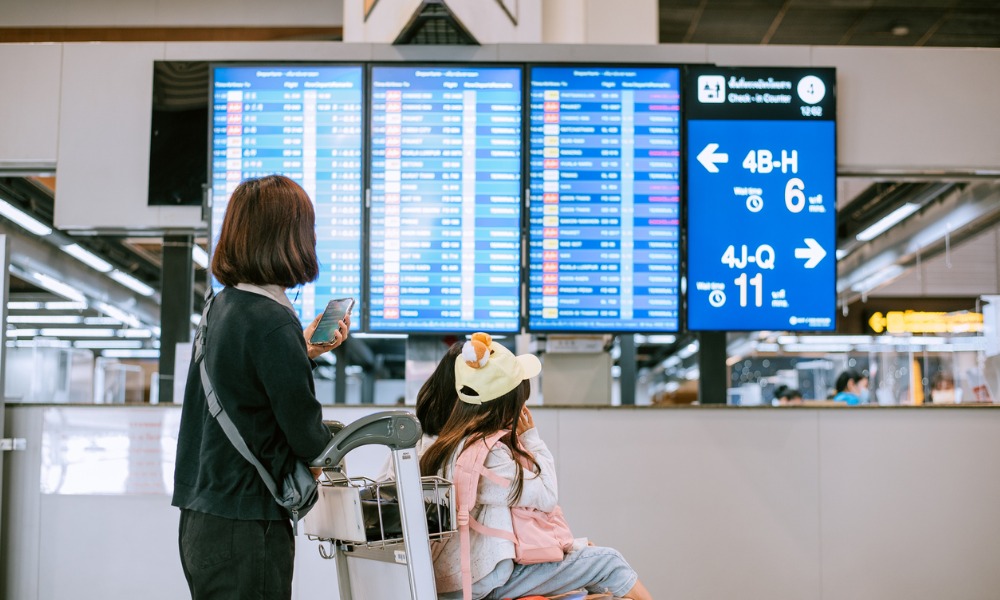Modern technology has made air transportation easier, and with this comes a spike in consumers taking domestic and international flights. To enhance the efficiency of the country’s air transportation sector, and to protect air passengers, Canada has established its civil aviation regulation.
What is civil aviation regulation in Canada?
Civil aviation regulation is the system of laws and regulations that governs the transportation of passengers, their carriage, and other goods. It includes both commercial and private transportation, other than for military and security purposes.
In Canada, civil aviation regulation covers the following:
- Air travel and aviation security: provides for the rights of passengers and obligations of air carriers as air travel. It also regulates airport security and in-flight safety.
- Licensing: regulates the licensing process of pilots, flight crew, and other airport personnel. It also regulates the licences and permits issued to flight schools.
- Airworthiness: provides for the regulatory standards that must be followed by airlines, airports, and aerodromes to ensure the safety of their crew, personnel, and passengers.
- Aircraft and airport operations: regulate the process of registration, operation, and leasing of aircraft, airports, and aerodromes.
- Accidents and investigations: provide for the process of reporting incidents to allow the proper investigation of the matter.
Regulations that guide civil aviation in Canada
Regulations of civil aviation in Canada are a combination of:
- federal laws
- regulations enacted through these federal laws
- international law (e.g., treaties and conventions)
The main Canadian laws that govern civil aviation are:
- Aeronautics Act
- Canada Transportation Act
- Carriage by Air Act
These laws, in turn, empower regulatory bodies, such as Transport Canada or the Canadian Transportation Agency (CTA), to publicize the different civil aviation regulations.
These regulations include:
- Canadian Aviation Regulations (CARs)
- Canadian Aviation Security Regulations, 2012
- Air Transportation Regulations
- Air Passenger Protection Regulations
- Accessible Transportation for Persons with Disabilities Regulations
- Transportation Safety Board Regulations
How is civil aviation regulated in Canada?
The different Canadian laws and regulations on civil aviation, as mentioned above, govern the following aspects of air travel:
Rights and obligations of passengers
One of the goals of civil aviation regulation is to protect your rights as airline customers. At the same time, it places obligations on both you and your airline or carrier.
Persons with disabilities
Canada’s Accessible Transportation for Persons with Disabilities Regulations require airlines to assist their passengers with disabilities. This includes assisting them in transporting their mobility aid as priority baggage:
#DYK Do you have questions about your mobility aids or assistive devices? Consult our @CTA_gc resource to find answers to your questions! > https://t.co/sIxpppR7MV pic.twitter.com/svpVkQTpaK
— CTA.gc.ca (@CTA_gc) June 14, 2023
To know more about your rights as a person with disability as provided by Canada’s civil aviation regulation, consult an aviation lawyer. If you’re from Vancouver or nearby areas, contact a Lexpert-Ranked best aviation lawyer in British Columbia.
Flight delays and cancellations
In case of flight delays or cancellations, airlines are obliged to:
- tell you why your flight was delayed or cancelled
- give you regular status updates in case of delays
- describe the specific assistance they’re providing for you
- explain what compensation you’re entitled to
Your rights and the course of action that you’re entitled to will depend on whether the delay or cancellation was within the airline’s control.
If within the airline’s control:
- Assistance: in case you were informed of the delay or cancellation less than 12 hours before your original departure, and you’ve waited at the airport for more than 2 hours.
- Rebooking: if your flight was delayed for more than 3 hours, or if it’s cancelled.
- Compensation for inconvenience: only if you were informed 14 days or less of the delay or cancellation and you arrived 3 hours late at your destination.
Within the airline’s control, but is required for safety:
- Assistance: in case you were informed of the delay or cancellation less than 12 hours before your original departure, and you’ve waited at the airport for more than 2 hours.
- Rebooking: if your flight was delayed for more than 3 hours, or if it’s cancelled.
Outside the airline’s control:
- Rebooking: if your flight was delayed for more than 3 hours, or if it’s cancelled.
The “assistance” referred to in the above circumstances include:
- Food and drinks
- Access to communication (e.g., WiFi, telephone)
- Hotel accommodation and transportation, but only if the delay or cancellation will require you to wait overnight
When filing a request for compensation for inconvenience, you must file it within 1 year of the incident. You may consult with an aviation lawyer on this matter.
Lost, damaged or delayed baggage
Canada’s civil aviation regulation provides you with different actions against your airline in case of:
- Lost and damaged baggage: refund any fees or compensate you if the baggage is in your airline’s care for up to C$2,350 to replace items that were lost or damaged.
- Delayed baggage: compensate you for the items you need until your baggage is returned. Amount varies, depending on whether it’s international (up to C$2,350) or domestic (check airline’s tariff via CTA website)
You must file your complaint with your airline within the time limits as provided by law for any lost, damaged, or delayed baggage:
#BeInTheKnow!
— CTA.gc.ca (@CTA_gc) August 22, 2023
If your baggage is lost, damaged or delayed, you must submit a claim to your airline in writing within the required time limits. If you don't submit a claim within these time limits, the airline could deny your claim. Learn more: https://t.co/ttyFzMHxfl #TravelTips pic.twitter.com/ANzgq6DnmB
Injuries or death
In case of passenger injuries or death, these laws apply:
- Canada’s common law and provincial laws on fatal accident, damages, negligence, and other liabilities that are enforceable through a court action.
- International treaties to which Canada is a signatory of, such as the Montreal Convention and Warsaw Convention, where cases may be filed and heard by Canadian courts.
If you’re planning to pursue a case against your airline for injuries or death under these laws, consult an aviation lawyer.
Who regulates civil aviation in Canada?
Civil aviation regulation is under the following regulatory agencies:
- Transport Canada
- Canadian Transportation Agency (CTA)
Complaints or disputes between you and your airline may be submitted online to the CTA. Before proceeding with such action, it is highly recommended to reach out to your airline first, with the assistance of an aviation lawyer.
Currently, Transport Canada aims to modernize the civil aviation regulations by collecting views and feedback from Canadians. Share your insights on the Let’s Talk Transportation website.
To know more about Canada’s civil aviation regulations, reach out to any of the best aviation lawyers in Canada as ranked by Lexpert.
Related Articles:
Air transport regulation: Canadian aviation laws to know
An overview of Canadian Aviation Regulations 702
A guide to Canadian Aviation Regulations 703
Canadian Aviation Regulations 704: a quick guide for air operators
Canadian Aviation Regulations 705: the basics for airline operators
Canadian Aviation Regulations: A Guide on Laws
What is Aviation law in Canada?





